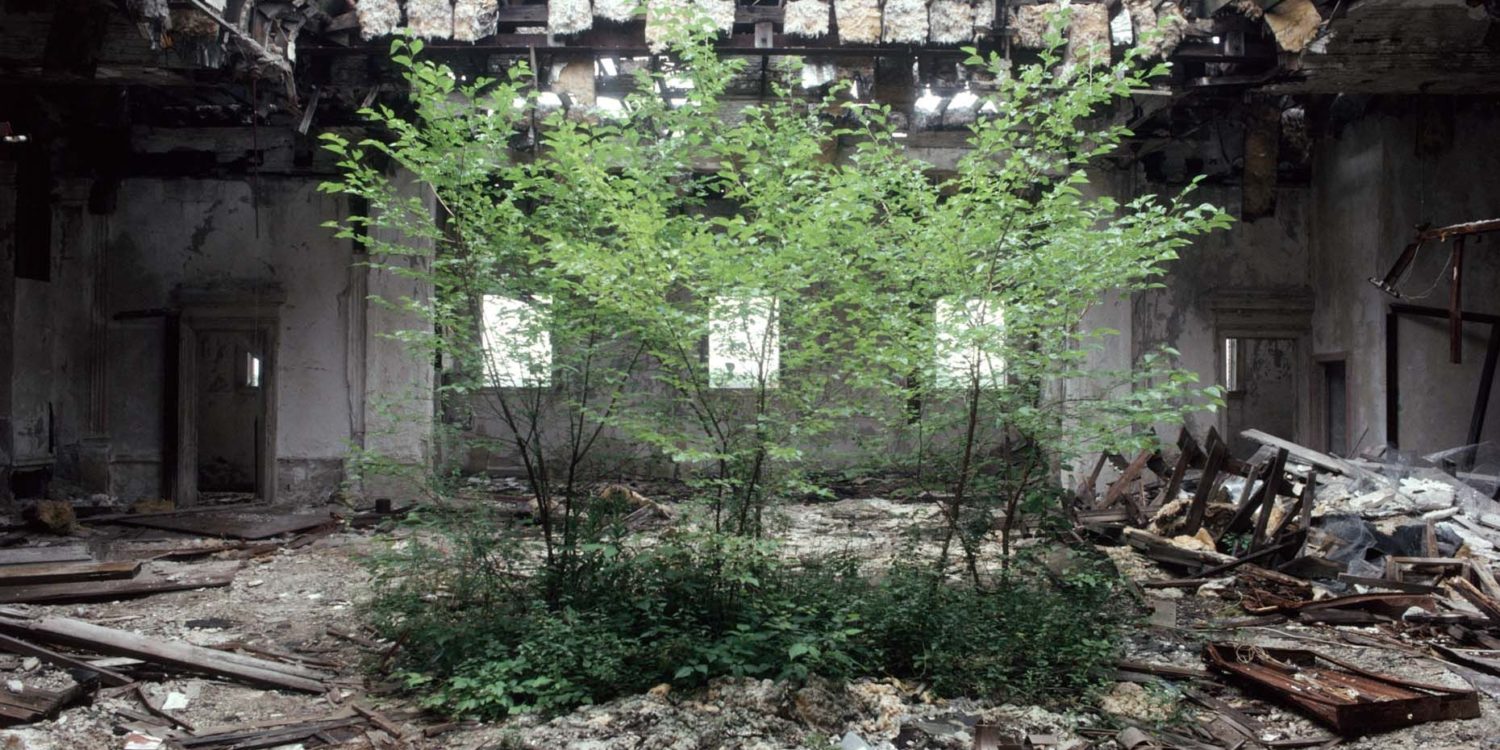
Once you've got one scene, why, you've taken the first step toward your novel. What do you do next? Another scene, of course! Write one scene a week, with 1500 or so words in each scene, and in a year you have a finished first draft. Yes, it really is that easy.
Here's my second scene. It follows directly on the first, which you can find
here. Just as your first scene doesn't have to be the beginning of your story, your second scene doesn't have to come directly after it; you can scatter scenes at random through your story, and then fill in the gaps between -- I do that as often as not. This story seems to be coming together in a more or less linear fashion, though, at least for the moment.
**************************
The two of them had just finished washing up after a breakfast of barley gruel when the knock came at the door. Embery stopped in the middle of a word, made herself go to the door and open it. The face that turned up toward hers belonged to a boy not much older than Tay, tow-haired and pale-eyed, in plain homespun trousers and shirt not too different from the ones Tay had on. From his look, he must have run all the way up from the village.
“Mistress Embery,” he said, panting. “My ma—her water’s broke, she says the baby’s coming.”
Eman, she recalled, Sullamy’s oldest; he’d been four when she’d settled in the little shack above the village, and she’d brought him through a bad case of quinsy the following year. “Then I’ll come at once, of course,” she reassured him. “Let me get the things I need.”
A few moments sufficed to gather herbs and cloths, stuff them in a satchel of coarse cloth, and tie a sturdy white apron over the front of blouse and skirt alike. “Tay—”
“I can go down to school now,” he said.
“Please,” she said, smiling.
Out the door the two of them went, into the gray morning, and followed Eman down the track that led past thickets of heather and gorse, past gray masses of stone where the bleak skeleton of the land showed through what soil there was. High clouds streamed overhead like locks of long white hair on the wind, reminding Embery of a story she knew better than to tell anyone but Tay. Around one shoulder of stone, the broad dark roofs of the monastery spread alongside the stream; around another, and the village lay below, the thatched roofs of the cottages huddled on either side of a single unpaved street, the gray stone walls dividing the fields spreading out to either side like fishes’ bones. Eman hurried ahead, his shoulders drawn up with worry, but Tay stayed close to her, took three steps for every two of hers.
Familiar noises rose around them as they reached the village: voices mingling in conversation, bleating of goats as they waited their turns for the morning milking, and off at the end of the street furthest from the dark walls of the monastery, where the smithy was, the hard steady beat of hammer on hot iron. As soon as they reached the foot of the street, Tay turned to her; she bent to accept his kiss, gave him one in return, and went after Eman as Tay made off toward the monastery gate.
The door to the cottage Sullamy shared with her husband and five children gaped wide, and the wooden shutters on the windows had been flung open as well: grandmother’s wisdom, that, to make the doors of birth open just as wide. Inside a gaggle of women milled about. Three of the women started talking to Embery at once, but she wove her way past them and got to Sullamy herself, bare from the waist down and perched on an old oaken birthing stool, her yellow hair dissheveled and her breathing ragged from the pains.
It took only a few questions to be sure the baby was close, but someone had already had the good sense to get water boiled, and so Embery got one set of herbs steeping for a potion for Sullamy to drink—this one to calm her nerves, that one to give strength to the womb, this other to keep fever from getting its claws into her—and another to wash mother and baby with once the birth was over. It was familiar work for Embery: sorting out tasks so the young women who didn’t know what to do had something to keep them out from underfoot, encouraging Sullamy when the pains started coming quick, then kneeling between her thighs and pushing sleeves up while two sturdy old women braced her from either side and the others began chanting one of the old birthing-songs, slow and solemn, so mother and baby would have luck in the world.
Sullamy cried out then, her voice rising above the song, and a moment later so did the baby. “A fine boy,” Embery said, lifting him for everyone to see. “And his da’s gray eyes, too.” She gave him to two other women to wash in the warm herb water, got a bucket in place for the afterbirth while they toweled him dry and set him at Sullamy’s breast.
Soon enough Sullamy was washed and dried, too, and tucked into bed with the baby in her arms. The women bustled about, closing windows and door to keep the baby now that he’d arrived, and talking about how puny and weak he was; that hadn’t the least truth to it, he was big and pink and nursed greedily, but it was more grandmothers’ wisdom to say that, so the spirits that haunted the wind wouldn’t be tempted to take him away with them. Embery rinsed arms and hands in more herb water, dried them on a cloth, took off the apron and folded it up for washing, and made another cup of potion for Sullamy.
The herbs still hadn’t finished steeping when someone pounded on the door, and a man’s voice followed it. Embery couldn’t make out the words, but she recognized the voice and the irritable tone at once. She winced, but there wasn’t anything to be done about it. She turned her back to the door, finished the potion and took it to Sullamy as the door opened.
“I’m told there’s a child to be delivered,” the newcomer said.
“Why, then, someone told you amiss, Master Merimer,” said old Damma, who was Sullamy’s oldest aunt. Embery, who was coaxing Sullamy to sip the potion just then, allowed a smile; the sharp edges of Damma’s wit and tongue were known and feared in more villages than one. “The baby didn’t need any delivering. He came all by himself, and we but had to catch him.”
That got a laugh from the other women, but Merimer said sourly, “Very witty! But birth is a serious matter, you know.”
“Oh, we know that, Master Merimer,” said Damma. “Better than any man.”
“Best I see how the child does,” Merimer insisted.
“And ask how many silver pennies for it? No, no, best keep your skill for those who can afford your hire.”
That earned Damma a moment of hard-edged silence, and then a nervous laugh from one of the younger women. Embery, her back still turned to the door and the man who stood there, needed no second sight to picture the scene behind her: the doctor standing in the door in his black coat, pale young face framed with pale hair, and no more expression on him than a block of wood might show while he brooded over what to say; Damma, red-faced and stout, hands on her hips and chin thrust forward; the other women nearby, gathered around as though they watched a dicing-game or a cockfight.
“Why, then I won’t trouble you more,” said Merimer, in a tone that put a scraping of pleasantry over cold fury. “If mother or child needs my help, do send for me.” The door whispered shut.
“The nerve of the man,” one of the women said, and another: “Silver pennies! I trust you won’t be taking up any such fashions as that, Mistress Embery.”
She turned, managed a laugh. “Good earth, no. I’ll settle things the old honest way while the spirits leave me breath.”
All things considered, she thought, that was the better choice for more reasons than one, as one after another of Sullamy’s kinswomen came up to her and named their birthing-gift: from one, two sacks of meal from the monastery mill; from another, a loom-length of good woolen cloth; from a third, wood for the stove, and more, enough to keep Embery and Tay fed and clothed and comfortable for a good while even if no babies came and no one took sick. Sullamy’s kin were as close to comfortable as anyone in the little village, and only one of the women there, thin brown-haired Issa in her patched dress, had to say, “Why, I’ll have to see what my Perren brings home,” which was the polite way to say she didn’t have anything to give—true enough, too, for her Perren drank away most of what he earned from the work he did, which wasn’t much anyway.
“Don’t you worry about that,” Embery told her, and saw the flicker of shame and relief in the woman’s eyes as she made a little bobbing curtsey.
Soon enough it was time to go. Embery filled her satchel with the herbs she hadn’t used and the cloths and apron she had, made sure that Sullamy was comfortable and the baby fine and healthy, chatted a little more with the women, said her farewells and made for the door. Damma bustled over to her before she could get there and gave her a plump chicken, already plucked and cleaned: a fine parting-gift, and more than so easy a birth really deserved, but Embery took it with thanks.
As she got to the door, Issa came after her, followed her outside. “Mistress Embery,” she said, “I know well this isn’t the first time I’ve had nothing for you, and you so good to little Beshy when she had the fever last winter, too. If ever you need something from me, or if ever I can find some good thing to do for you, why, you’ll have it.” Embery thanked her, too, and went back out onto the street that ran through the middle of the village.
The morning hadn’t changed much since she’d hurried down through the gray dawn. The smith at the street’s far end was pounding another piece of hot iron into shape; goats bleated one to another, and villagers did something not too different. As Embery turned toward the path back up the hill, though, she saw Merimer the doctor, standing out in front of the monastery gate, and he saw her at the same moment. The wintry look he sent her way told her, not that she needed any reminder, that he knew perfectly well who Sullamy’s kinswoman had sent for that morning, and why; told her, also, how much he resented it. She put a bland pleasant expression on her face, left the village as quickly as she could without seeming to hurry.
 I need a little help from my readers for a fiction project in the early conceptual changes.
I need a little help from my readers for a fiction project in the early conceptual changes.  On the off chance any of my readers happens to be fluent in Korean, I'd like to ask for a little help here. The Korean dictionaries I've been able to find online give two words for "wolf" -- neugdae and ili (or, in one older dictionary, iri). Which of these is the correct word for the animal shown on the left -- and if both of them are, do they have different connotations, or are they used in different contexts?
On the off chance any of my readers happens to be fluent in Korean, I'd like to ask for a little help here. The Korean dictionaries I've been able to find online give two words for "wolf" -- neugdae and ili (or, in one older dictionary, iri). Which of these is the correct word for the animal shown on the left -- and if both of them are, do they have different connotations, or are they used in different contexts?  I've been having to ask for more help than usual these days -- many thanks to my readers for pitching in with details! -- and here I am again, with a question for the geologically minded.
I've been having to ask for more help than usual these days -- many thanks to my readers for pitching in with details! -- and here I am again, with a question for the geologically minded.  I need some assistance with a fiction project from readers literate in Japanese. It's set in a deindustrial future where most of the population of Japan had to flee the islands a while back -- we won't get into spoiler territory by talking about why. One of the amenities of the community where about half the story takes place is a Shinto shrine dedicated to those kami who also left Japan. Its name in English works out to the Hall of Homeless Gods; it's the Japanese for this that I need to doublecheck.
I need some assistance with a fiction project from readers literate in Japanese. It's set in a deindustrial future where most of the population of Japan had to flee the islands a while back -- we won't get into spoiler territory by talking about why. One of the amenities of the community where about half the story takes place is a Shinto shrine dedicated to those kami who also left Japan. Its name in English works out to the Hall of Homeless Gods; it's the Japanese for this that I need to doublecheck.  I'm delighted to announce that the first issue of New Maps, the new quarterly magazine of deindustrial future fiction, is in print and available for purchase. It's got stories by a fine mix of established deindustrial fiction authors and newcomers to the field -- Pierre Magdeleine, Dawn Vogel, Daniel Chawner, Jonathan Reif, Jeff Burt, David England, G. Kay Bishop and Violet Bertelsen -- as well as a book review and a letters column that is already full of conversation. I'm eagerly looking forward to my copy.
I'm delighted to announce that the first issue of New Maps, the new quarterly magazine of deindustrial future fiction, is in print and available for purchase. It's got stories by a fine mix of established deindustrial fiction authors and newcomers to the field -- Pierre Magdeleine, Dawn Vogel, Daniel Chawner, Jonathan Reif, Jeff Burt, David England, G. Kay Bishop and Violet Bertelsen -- as well as a book review and a letters column that is already full of conversation. I'm eagerly looking forward to my copy.  Gather ‘round the fireplace, children, and I’ll tell you a Yuletide story. It’s not one of the ones you grew up watching on the media, and there’s a reason for that, which we’ll get to. I think you’ll appreciate it anyway.
Gather ‘round the fireplace, children, and I’ll tell you a Yuletide story. It’s not one of the ones you grew up watching on the media, and there’s a reason for that, which we’ll get to. I think you’ll appreciate it anyway. Regular readers of my blog will be familiar with my longtime interest in deindustrial fiction -- that is to say, fiction set in the kind of future we're actually going to get, in which declining resources, crumbling infrastructure, and the accelerating failure of the grand myth of perpetual progress take the place of the shoddy Tomorrowland kitsch that provides so many minds these days with their prefab thoughts. There aren't many venues that will publish stories of that kind -- it's long been a source of wry amusement to me that so many of those cultural venues that like to strut around claiming to be antinomian and transgressive are the first to run like rabbits back into the conventional wisdom the moment anybody proposes something that actually contradicts the conformist beliefs of our time.
Regular readers of my blog will be familiar with my longtime interest in deindustrial fiction -- that is to say, fiction set in the kind of future we're actually going to get, in which declining resources, crumbling infrastructure, and the accelerating failure of the grand myth of perpetual progress take the place of the shoddy Tomorrowland kitsch that provides so many minds these days with their prefab thoughts. There aren't many venues that will publish stories of that kind -- it's long been a source of wry amusement to me that so many of those cultural venues that like to strut around claiming to be antinomian and transgressive are the first to run like rabbits back into the conventional wisdom the moment anybody proposes something that actually contradicts the conformist beliefs of our time.  Yeah, it's an overused metaphor, but it's still a good one. The publishing industry is in the middle of an immense change just now, and the similarities to the last years of the Cretaceous era are hard to miss. I had a reminder of that -- more precisely, two very neatly juxtaposed reminders -- this afternoon.
Yeah, it's an overused metaphor, but it's still a good one. The publishing industry is in the middle of an immense change just now, and the similarities to the last years of the Cretaceous era are hard to miss. I had a reminder of that -- more precisely, two very neatly juxtaposed reminders -- this afternoon.  Reminder #2, though, came from Founders House Publishing, the firm that's bringing out The Weird of Hali series. Founders House isn't a huge corporate press; it's a small firm, a little family-run business taking advantage of print-on-demand technology to carve out a niche market under the feet of the huge corporate presses. Yes, that's when I thought of the metaphor of dinosaurs and mammals.
Reminder #2, though, came from Founders House Publishing, the firm that's bringing out The Weird of Hali series. Founders House isn't a huge corporate press; it's a small firm, a little family-run business taking advantage of print-on-demand technology to carve out a niche market under the feet of the huge corporate presses. Yes, that's when I thought of the metaphor of dinosaurs and mammals.  Once you've got one scene, why, you've taken the first step toward your novel. What do you do next? Another scene, of course! Write one scene a week, with 1500 or so words in each scene, and in a year you have a finished first draft. Yes, it really is that easy.
Once you've got one scene, why, you've taken the first step toward your novel. What do you do next? Another scene, of course! Write one scene a week, with 1500 or so words in each scene, and in a year you have a finished first draft. Yes, it really is that easy.  Okay, now it's time for the first scene. You don't have to have answered the questions you came up with to write the first scene; you write the scene to come up with the answers. Just start writing, without trying to edit as you go, and see what comes out.
Okay, now it's time for the first scene. You don't have to have answered the questions you came up with to write the first scene; you write the scene to come up with the answers. Just start writing, without trying to edit as you go, and see what comes out.  ...so let's begin.
...so let's begin.  I’ve been brooding again over how to teach writing, and how not to teach it, and a possibility occurs to me.
I’ve been brooding again over how to teach writing, and how not to teach it, and a possibility occurs to me.
